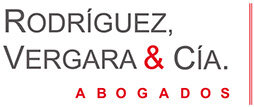Best Employer Lawyers in Chile
Share your needs with us, get contacted by law firms.
Free. Takes 2 min.
Or refine your search by selecting a city:
List of the best lawyers in Chile
About Employer Law in Chile:
Employer law in Chile governs the relationship between employers and employees in the workplace. It covers areas such as hiring, firing, wages, working conditions, and employee rights. Understanding employer law is crucial for both employers and employees to ensure compliance and protect their rights.
Why You May Need a Lawyer:
You may need a lawyer specializing in employer law in Chile if you are facing issues such as wrongful termination, discrimination, harassment, wage disputes, or violations of labor laws. A lawyer can provide legal advice, represent you in negotiations or legal proceedings, and help you navigate the complex legal system.
Local Laws Overview:
Key aspects of employer law in Chile include provisions for minimum wage, maximum working hours, overtime pay, collective bargaining agreements, and protection against unfair dismissal. Employers are required to comply with labor laws to ensure fair treatment of employees and maintain a harmonious work environment.
Frequently Asked Questions:
1. Can my employer terminate my employment without cause in Chile?
In Chile, employers can terminate employment contracts without cause by giving the employee a one-month notice or paying a severance package based on the length of service.
2. What are the working hours and overtime regulations in Chile?
The standard working week in Chile is 45 hours, with any hours worked beyond that considered overtime. Overtime pay is typically 1.5 times the regular wage.
3. Are there any anti-discrimination laws in Chile protecting employees?
Yes, Chile has laws that prohibit discrimination based on race, gender, age, disability, religion, and other protected characteristics in the workplace.
4. Can employees in Chile form labor unions?
Yes, employees in Chile have the right to form labor unions and engage in collective bargaining to negotiate with employers on wages, working conditions, and other employment-related matters.
5. What are the requirements for employees to receive severance pay in Chile?
Employees in Chile are entitled to severance pay if they are terminated without cause. The amount of severance pay is based on the length of service and the employee's salary.
6. Is there a minimum wage in Chile?
Yes, Chile has a minimum wage that is set annually by the government. Employers must ensure that all employees are paid at least the minimum wage for their work.
7. Can employees in Chile take legal action against their employers for unfair treatment?
Yes, employees in Chile have the right to take legal action against their employers for unfair treatment, including wrongful termination, discrimination, harassment, or violations of labor laws.
8. Are employers in Chile required to provide paid time off to employees?
Yes, employers in Chile are required to provide paid time off to employees for holidays, vacations, and sick leave in accordance with labor laws and any collective bargaining agreements.
9. What are the regulations for hiring minors in Chile?
In Chile, minors under the age of 18 are subject to special regulations regarding working hours, conditions, and restrictions on certain types of work to protect their health and well-being.
10. Can employees in Chile refuse to work in unsafe conditions?
Yes, employees in Chile have the right to refuse to work in unsafe conditions that pose a risk to their health or safety. Employers are required to provide a safe work environment and take measures to prevent accidents and injuries.
Additional Resources:
For more information on employer law in Chile, you can contact the Labor Directorate (Dirección del Trabajo) or seek assistance from labor unions, legal aid organizations, or private law firms specializing in labor law.
Next Steps:
If you require legal assistance with employer law in Chile, consider consulting with a knowledgeable lawyer who can provide guidance and representation to protect your rights and interests in the workplace.
Lawzana helps you find the best lawyers and law firms in Chile through a curated and pre-screened list of qualified legal professionals. Our platform offers rankings and detailed profiles of attorneys and law firms, allowing you to compare based on practice areas, including Employer, experience, and client feedback.
Each profile includes a description of the firm's areas of practice, client reviews, team members and partners, year of establishment, spoken languages, office locations, contact information, social media presence, and any published articles or resources. Most firms on our platform speak English and are experienced in both local and international legal matters.
Get a quote from top-rated law firms in Chile — quickly, securely, and without unnecessary hassle.
Disclaimer:
The information provided on this page is for general informational purposes only and does not constitute legal advice. While we strive to ensure the accuracy and relevance of the content, legal information may change over time, and interpretations of the law can vary. You should always consult with a qualified legal professional for advice specific to your situation.
We disclaim all liability for actions taken or not taken based on the content of this page. If you believe any information is incorrect or outdated, please contact us, and we will review and update it where appropriate.
Browse employer law firms by city in Chile
Refine your search by selecting a city.

















